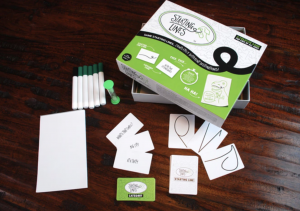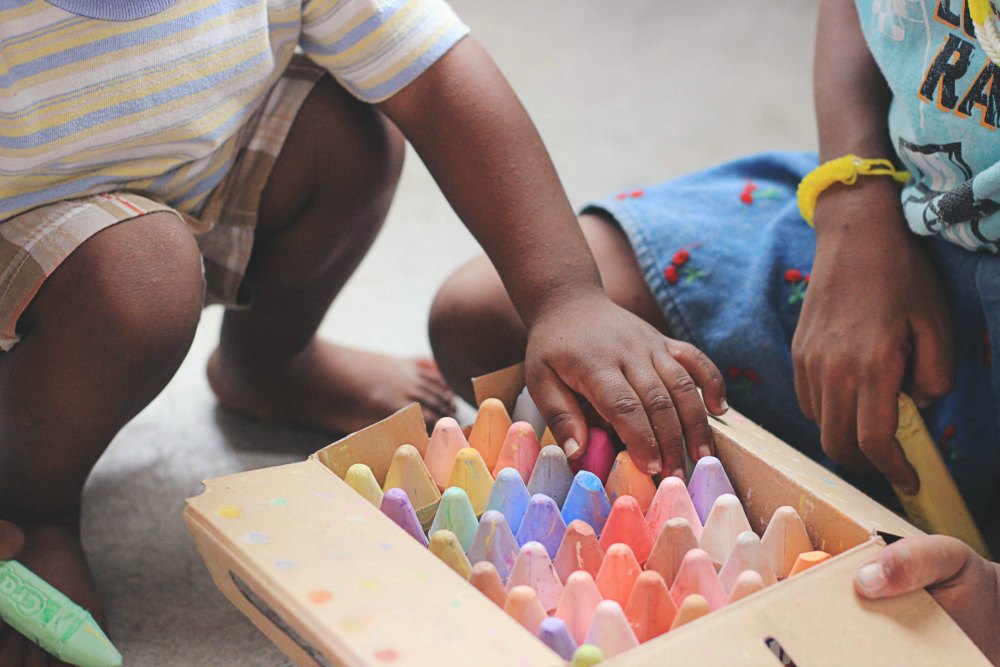Children are naturally more creative than adults. That’s not just anecdotal evidence because my son told me “to go run and do something” when I asked him to put his pyjamas on.
Research shows that creativity in young children peaks before they enter middle school. Unfortunately, children’s creativity is declining. The Torrance Tests for Creative Thinking have been administered to national samples in the United States since the 1970’s and since the 1990’s, children’s creativity has been declining. This is concerning enough to be called the “creativity crisis.” Some research shows that creativity in childhood is a better predictor of accomplishments than IQ. And, when surveyed, business leaders rank the ability to think creatively as one of the top skills they are looking for.
So, What’s Causing the Decline?
The research does not tell us what is causing the decline of creativity in children. However, two things are often blamed: over-reliance on screen-based entertainment and increasingly structured (rigid) academics. In the Untied States, an obsession with assessment has been fuelled by laws and programs like No Child Left Behind, Race to the Top and Every Student Succeeds. An emphasis on assessment of the schools is leaving little room for teachers to be creative and go off task based on student interest, weather or other variables. If teachers are less able to be creative, the effect drips down to students as well.
Children are spending more time than ever with screens for entertainment purposes. Theoretically, screens can be used for creative purposes. However, research shows that less than 3% of children’s time on screen is creative use. Children are consuming content which is influencing their play and ideas and research suggests there is a negative relationship between media use and creativity.
Nurturing Creativity in Our Children. What do We Do About it?
-
Turn the Screens Off
It has long been said that boredom is the friend of creativity. If you are concerned about creativity, in yourself or your child, offer the opportunity to be bored. You may find that your child) is able to come up with some interesting ideas after little struggle.
-
Encourage Questions
Instead of jumping to answer a child’s question or hopping to google to answer your own, allow your child’s creative brain to wrap to around “why” questions.
-
Encourage Free Play in Kids (and Adults)
There are plenty of times when children and adults are creative just by the nature of needing to come up with game that will be fun for all. Children who have ample time for free play spend a big portion of it figuring out what to play, how to play, who will be in charge, etcetera.
-
Get Outside
Seems simple but research shows that time in nature increases creativity. Researchers theorize this is because nature allows gentle, reflective stimulation like clouds moving, trees rustling or waves lapping. This type of input does not demand attention (like a push notification from technology), but instead allows our mind to wander.
-
Uninhibited Drawing
Doodle, draw together and engage in other art-based activities that allow your child a form of creative expression.
You might also like …
 In the movement towards creativity, Meghan has created a board game called Starting LinesTM for families and adults. The Kickstarter campaign was launched on August 1st and they would love to have your support. Find out more about their Get One/Give One option, a brilliant initiative where they will send you a game and donate one to charity.
In the movement towards creativity, Meghan has created a board game called Starting LinesTM for families and adults. The Kickstarter campaign was launched on August 1st and they would love to have your support. Find out more about their Get One/Give One option, a brilliant initiative where they will send you a game and donate one to charity.
About the Author: Meghan Owenz
Screen-Free Mom is a psychologist, writer and a university psychology instructor. She has her Doctorate in Counseling Psychology from the University of Miami and Master’s in Clinical Psychology from Pepperdine University. She is happily raising her two kids sans screens. She runs a website: www.screenfreeparenting.com where she writes about tech-wise parenting and provides tons of screen-free activities.




